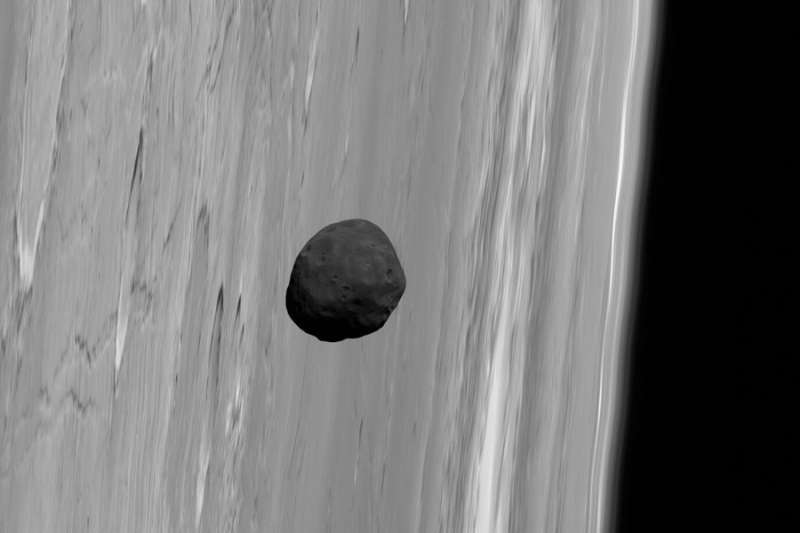Credit & Copyright: G. Neukum
(FU Berlin) et al., Mars Express,
DLR,
ESA;
Acknowledgement: Peter Masek
Explanation:
Why is Phobos so dark?
Phobos, the largest and innermost of two
Martian moons, is the darkest moon in the entire
Solar System.
Its unusual orbit and color indicate that it may be a captured
asteroid composed of a mixture of ice and dark rock.
The above picture
of Phobos near the limb of Mars was
captured
last month by the robot spacecraft
Mars Express currently orbiting Mars.
Phobos is a heavily cratered and
barren moon, with its
largest crater located on the far side.
From images like this,
Phobos has been determined
to be covered by perhaps a meter of
loose dust.
Phobos orbits
so close to Mars that from some places it would appear to rise and
set twice a day, but from other places
it would not be visible at all.
Phobos' orbit around Mars is
continually decaying -- it will likely
break up with pieces crashing to the Martian surface in about 50 million years.
1999 2000 2001 2002 2003 2004 2005 2006 2007 2008 2009 2010 2011 2012 2013 2014 2015 2016 2017 2018 2019 2020 2021 2022 2023 2024 2025 2026 |
Январь Февраль Март Апрель Май Июнь Июль Август Сентябрь Октябрь Ноябрь Декабрь |
NASA Web Site Statements, Warnings, and Disclaimers
NASA Official: Jay Norris. Specific rights apply.
A service of: LHEA at NASA / GSFC
& Michigan Tech. U.
|
Публикации с ключевыми словами:
Phobos - Mars - Mars-Express - Фобос - Марс - космические аппараты
Публикации со словами: Phobos - Mars - Mars-Express - Фобос - Марс - космические аппараты | |
См. также:
Все публикации на ту же тему >> | |
